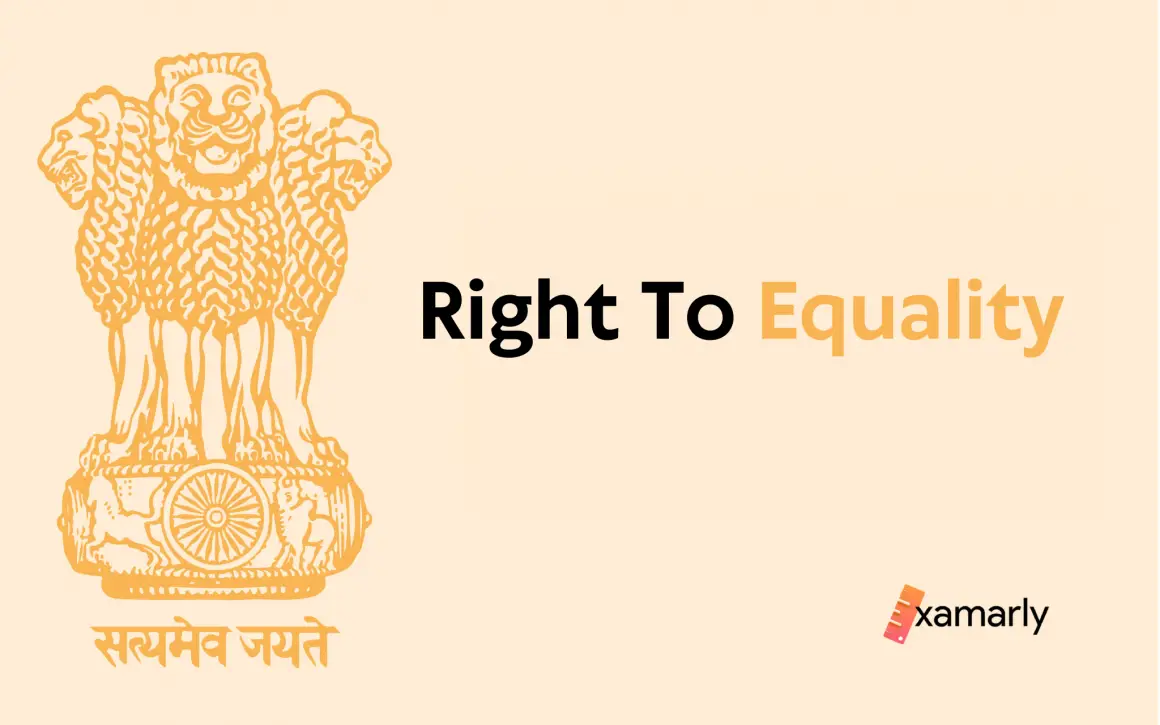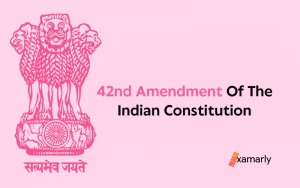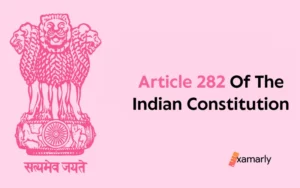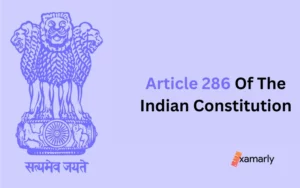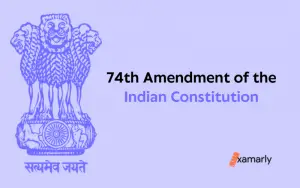The third section of the Indian Constitution guarantees a set of fundamental rights to all Indian citizens, regardless of their background. These rights, as stated by Dr. B. R. Ambedkar, are considered to be the most beneficial to citizens. They are a crucial aspect of the Constitution because they protect individuals’ rights and freedoms from being violated by the government, which holds a significant amount of power in a democratic society. These rights aim to uphold the values of justice, equality, liberty, dignity, and fraternity outlined in the Preamble.
For democracy to thrive and prosper, it is essential that everyone in society is treated fairly and without prejudice. The framers of the Constitution believed that by including such rights, they could eliminate existing disparities based on socioeconomic status and cultural differences and allow different groups in the nation to enjoy the liberties and rights provided by the Constitution.
It was critical to eliminate inequalities based on religion, social norms, and age-old practices prevalent in India, such as casteism, untouchability, and racial discrimination. This led to the inclusion of the Right to Equality clause in the Constitution. This clause ensures that all citizens are treated equally and without discrimination, which is essential for the growth and development of the nation’s democracy.
- What Is "Right To Equality"?
- Right To Equality Under Article 14 Of The Indian Constitution
- Right To Equality Under Article 15 Of The Indian Constitution
- Right To Equality Under Article 16 Of The Indian Constitution
- Right To Equality Under Article 17 Of The Indian Constitution
- Right To Equality Under Article 18 Of The Indian Constitution
- How It Works (The Underlying Principle)
- Conclusion
- FAQs Related To the Right To Equality
- What is the right to equality as protected in the Indian Constitution?
- What does Article 14 of the Indian Constitution state?
- What does Article 16 of the Indian Constitution say about equality of opportunity in employment?
- What is the purpose of Article 17 of the Indian Constitution?
- Is it legal for citizens to accept titles from foreign states?
- What measures does the Indian Constitution provide for addressing existing inequalities?
What Is “Right To Equality”?
The Right to Equality is a fundamental right guaranteed to all citizens in India by the Constitution. It means that there should be no legal discrimination on the basis of caste, race, religion, sex, or place of birth, and all citizens should have equal rights and opportunities. It is considered a basic feature of the Indian Constitution and is essential for the growth and development of a democratic society.
The Right to Equality is both a positive and a negative right, meaning it not only ensures that all citizens are treated equally but also ensures that the state does not discriminate against any individual or group. The right to equality is a cornerstone of the Indian Constitution, it ensures that all citizens are treated with dignity, respect, and fairness, which is vital for a functional democracy.
Right to equality is divided under the following clauses as per the Constitution of India:
- Article 14 – Equality before law
- Article 15 – Prohibition of discrimination on grounds of religion, caste, race, sex or place of birth
- Article 16 – Equality of opportunity in matters of public employment
- Article 17 – Abolition of untouchability
- Article 18 – Abolition of titles
Right To Equality Under Article 14 Of The Indian Constitution
Equality before law
The State shall not deny to any person equality before the law or the equal protection of the laws within the territory of India.
- Article 14 of the Indian Constitution states that all citizens will be treated equally before the law. It ensures that the law of the country protects everybody equally and that under the same circumstances, the law will treat people in the same manner.
- This provision guarantees that all individuals are treated with fairness and justice, regardless of their background or status.
- It is a fundamental right that serves as a cornerstone of the Indian legal system.
To learn more, read 1st Amendment Of Indian Constitution
Right To Equality Under Article 15 Of The Indian Constitution
Prohibition of discrimination on grounds of religion, race, caste, sex or place of birth
(1) The State shall not discriminate against any citizen on grounds only of religion, race, caste, sex, place of birth or any of them.
(2) No citizen shall, on grounds only of religion, race, caste, sex, place of birth or any of them, be subject to any disability, liability, restriction or condition with regard to—
(a) access to shops, public restaurants, hotels and places of public entertainment; or
(b) the use of wells, tanks, bathing ghats, roads and places of public resort maintained wholly or partly out of State funds or dedicated to the use of the general public.
(3) Nothing in this article shall prevent the State from making any special provision for women and children.
(4) Nothing in this article or in clause (2) of article 29 shall prevent the State from making any special provision for the advancement of any socially and educationally backward classes of citizens or for the Scheduled Castes and the Scheduled Tribes.
(5) Nothing in this article or in sub-clause (g) of clause (1) of article 19 shall prevent the State from making any special provision, by law, for the advancement of any socially and educationally backward classes of citizens or for the Scheduled Castes or the Scheduled Tribes in so far as such special provisions relate to their admission to educational institutions including private educational institutions, whether aided or unaided by the State, other than the minority educational institutions referred to in clause (1) of article 30.
(6) Nothing in this article or sub-clause (g) of clause (1) of article 19 or clause (2) of article 29 shall prevent the State from making,—
(a) any special provision for the advancement of any economically weaker sections of citizens other than the classes mentioned in clauses (4) and (5); and
(b) any special provision for the advancement of any economically weaker sections of citizens other than the classes mentioned in clauses (4) and (5) in so far as such special provisions relate to their admission to educational institutions including private educational institutions, whether aided or unaided by the State, other than the minority educational institutions referred to in clause (1) of article 30, which in the case of reservation would be in addition to the existing reservations and subject to a maximum of ten per cent. of the total seats in each category.
Explanation.—For the purposes of this article and article 16, “economically weaker sections” shall be such as may be notified by the State from time to time on the basis of family income and other indicators of economic disadvantage.
- Article 15 of the Indian Constitution prohibits discrimination against citizens on the basis of religion, race, caste, sex, place of birth or any of them.
- No citizen shall be subject to any disability, liability, restriction or condition with regard to access to public places or the use of public facilities such as roads, tanks, and wells.
- The state can make special provisions for women and children, as well as for socially and educationally backward classes of citizens and Scheduled Castes and Scheduled Tribes.
- The state can also make special provisions for the advancement of economically weaker sections of citizens in terms of their admission to educational institutions.
- These special provisions may be subject to a maximum of 10% of total seats in each category and would be in addition to any existing reservations.
You Might Also Like To Read 93rd Amendment Of Indian constitution
Right To Equality Under Article 16 Of The Indian Constitution
Equality of opportunity in matters of public employment
(1) There shall be equality of opportunity for all citizens in matters relating to employment or appointment to any office under the State.
(2) No citizen shall, on grounds only of religion, race, caste, sex, descent, place of birth, residence or any of them, be ineligible for, or discriminated against in respect of, any employment or office under the State.
(3) Nothing in this article shall prevent Parliament from making any law prescribing, in regard to a class or classes of employment or appointment to an office under the Government of, or any local or other authority within, a State or Union territory, any requirement as to residence within that State or Union territory] prior to such employment or appointment.
(4) Nothing in this article shall prevent the State from making any provision for the reservation of appointments or posts in favour of any backward class of citizens which, in the opinion of the State, is not adequately represented in the services under the State.
(4A) Nothing in this article shall prevent the State from making any provision for reservation 3 [in matters of promotion, with consequential seniority, to any class] or classes of posts in the services under the State in favour of the Scheduled Castes and the Scheduled Tribes which, in the opinion of the State, are not adequately represented in the services under the State.
(4B) Nothing in this article shall prevent the State from considering any unfilled vacancies of a year which are reserved for being filled up in that year in accordance with any provision for reservation made under clause (4) or clause (4A) as a separate class of vacancies to be filled up in any succeeding year or years and such class of vacancies shall not be considered together with the vacancies of the year in which they are being filled up for determining the ceiling of fifty per cent. reservation on total number of vacancies of that year.
(5) Nothing in this article shall affect the operation of any law which provides that the incumbent of an office in connection with the affairs of any religious or denominational institution or any member of the governing body thereof shall be a person professing a particular religion or belonging to a particular denomination.
(6) Nothing in this article shall prevent the State from making any provision for the reservation of appointments or posts in favour of any economically weaker sections of citizens other than the classes mentioned in clause (4), in addition to the existing reservation and subject to a maximum of ten per cent. of the posts in each category.
- Article 16 of the Indian Constitution guarantees equality of opportunity for all citizens in matters relating to employment or appointment to any office under the state.
- No citizen shall be ineligible for or discriminated against in respect of any employment or office based on religion, race, caste, sex, descent, place of birth, residence or any of them.
- Parliament may make laws prescribing residence requirements for certain classes or types of employment or appointment within a state or union territory.
- The state may make provisions for reservation of appointments or posts in favor of backward classes of citizens that are not adequately represented in the services under the state, as well as for Scheduled Castes and Scheduled Tribes.
- Vacancies reserved for certain classes or groups may be considered as a separate class to be filled in later years, and will not count towards the 50% reservation ceiling on the total number of vacancies in that year.
- The operation of laws regarding appointments to religious or denominational institutions or governing bodies will not be affected by this article.
- The state may also make provisions for reservation of appointments or posts for economically weaker sections of citizens in addition to existing reservations and subject to a maximum of 10% of posts in each category.
Learn more: 103rd Amendment Of Indian Constitution
Right To Equality Under Article 17 Of The Indian Constitution
Abolition of Untouchability
“Untouchability” is abolished and its practice in any form is forbidden. The enforcement of any disability arising out of “Untouchability” shall be an offence punishable in accordance with law.
- Article 17 of the Indian Constitution abolishes the practice of “Untouchability” and prohibits its practice in any form.
- The enforcement of any disability arising out of “Untouchability” is considered an offence and is punishable by law.
Right To Equality Under Article 18 Of The Indian Constitution
Abolition of titles
(1) No title, not being a military or academic distinction, shall be conferred by the State.
(2) No citizen of India shall accept any title from any foreign State.
(3) No person who is not a citizen of India shall, while he holds any office of profit or trust under the State, accept without the consent of the President any title from any foreign State.
(4) No person holding any office of profit or trust under the State shall, without the consent of the President, accept any present, emolument, or office of any kind from or under any foreign State.
- Article 18 of the Indian Constitution prohibits the conferral of titles by the state, except for military or academic distinctions.
- It also prohibits Indian citizens from accepting titles from foreign states.
- Non-citizens holding any office of profit or trust under the state are not allowed to accept any title from a foreign state without the consent of the President.
- Similarly, individuals holding any office of profit or trust under the state are not allowed to accept any present, emolument, or office of any kind from or under any foreign state without the consent of the President.
You Might Also Like 81st Amendment Of Indian Constitution
How It Works (The Underlying Principle)
The right to equality, as protected in the Indian Constitution and other legal frameworks, is founded on the principle that all individuals should be treated fairly, not just in terms of receiving equal treatment, but also in receiving appropriate treatment based on their individual characteristics and circumstances. This means that while equal treatment may be appropriate for certain situations, it may not always be the most appropriate solution for addressing disparities and promoting fairness.
To effectively address these disparities, it is necessary to make fair classifications of individuals based on relevant characteristics, such as socio-economic status, race, gender, and other factors. This allows for the development of targeted strategies that can help to reduce inequities as much as possible. This may include policies and programs that address specific needs and challenges faced by marginalized groups, such as affirmative action, reservation and educational policies, and other forms of targeted support.
It’s worth noting that, in order to ensure fairness, these classifications must be based on objective criteria, and not on arbitrary or discriminatory grounds. Additionally, the classifications should not be used to perpetuate discrimination, but rather to address and eliminate existing inequalities.
Also Read – 77th Amendment Of Indian Constitution
Conclusion
In conclusion, the right to equality as protected in the Indian Constitution, through articles 14 to 18, serves as a fundamental principle that ensures that all individuals are treated with fairness and justice, regardless of their background or status. The provisions of these articles guarantee that all citizens are treated equally before the law, prohibit discrimination on certain grounds, and provide for measures such as affirmative action to address existing inequalities.
However, it’s important to note that equal treatment is not always the most appropriate solution for addressing disparities and promoting fairness. Therefore, these articles also provide for the possibility of making fair classifications of individuals based on relevant characteristics, such as socio-economic status, race, gender, and other factors, in order to develop targeted strategies that can help to reduce inequities as much as possible.
It is also crucial to emphasize that these classifications must be based on objective criteria, and not on arbitrary or discriminatory grounds, and should not be used to perpetuate discrimination but rather to address and eliminate existing inequalities.
In summary, the right to equality as protected by the Indian Constitution is a cornerstone of the Indian legal system, that guarantees the fairness and justice to all citizens, but also provides for targeted measures to address existing inequalities. It is a reminder that while we all deserve to be treated equally, we also deserve to be treated in a way that is appropriate for our individual needs and circumstances.
For more information, read 85th Amendment Of Indian Constitution
FAQs Related To the Right To Equality
What is the right to equality as protected in the Indian Constitution?
The right to equality as protected in the Indian Constitution is a fundamental principle that ensures that all individuals are treated with fairness and justice, regardless of their background or status. This is guaranteed through provisions in articles 14 to 18 of the Constitution.
What does Article 14 of the Indian Constitution state?
Article 14 of the Indian Constitution states that all citizens will be treated equally before the law. It ensures that the law of the country protects everybody equally and that under the same circumstances, the law will treat people in the same manner.
What does Article 16 of the Indian Constitution say about equality of opportunity in employment?
Article 16 of the Indian Constitution guarantees equality of opportunity for all citizens in matters relating to employment or appointment to any office under the state. It also prohibits discrimination on the grounds of religion, race, caste, sex, descent, place of birth, residence or any of them.
What is the purpose of Article 17 of the Indian Constitution?
Article 17 of the Indian Constitution abolishes the practice of “Untouchability” and prohibits its practice in any form. The enforcement of any disability arising out of “Untouchability” is considered an offence and is punishable by law.
Is it legal for citizens to accept titles from foreign states?
As per Article 18 of the Indian Constitution, no citizen of India shall accept any title from any foreign state. Non-citizens holding any office of profit or trust under the state are also not allowed to accept any title from foreign state without the consent of the President.
What measures does the Indian Constitution provide for addressing existing inequalities?
The Indian Constitution provides for measures such as affirmative action, reservation and educational policies, and other forms of targeted support, to address existing inequalities by making fair classifications of individuals based on relevant characteristics, such as socio-economic status, race, gender, and other factors.


